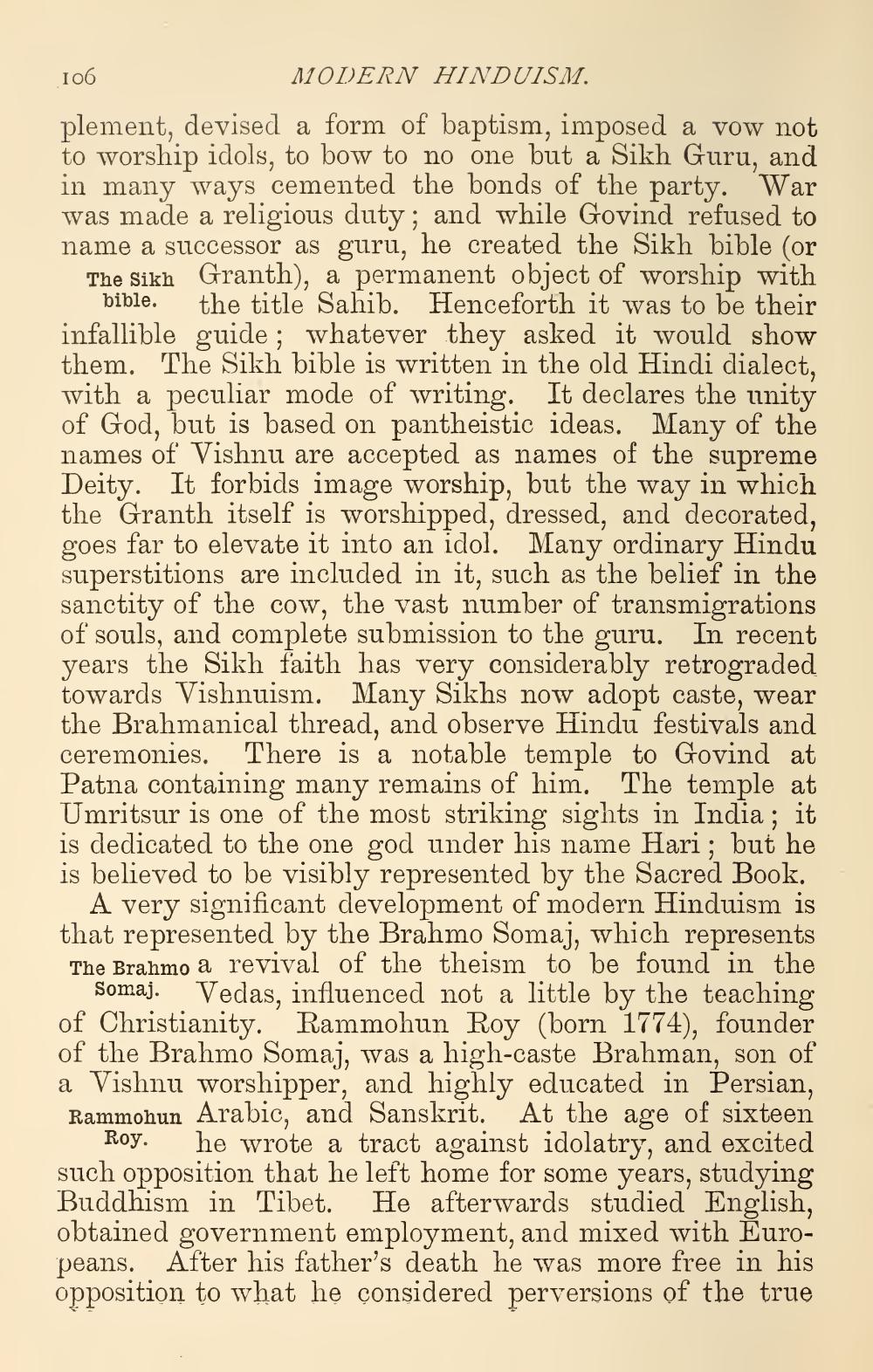________________
106
MODERN HINDUISM. plement, devised a form of baptism, imposed a vow not to worship idols, to bow to no one but a Sikh Guru, and in many ways cemented the bonds of the party. War was made a religious duty; and while Govind refused to name a successor as guru, he created the Sikh bible (or
The Sikh Granth), a permanent object of worship with
bible. the title Sahib. Henceforth it was to be their infallible guide; whatever they asked it would show them. The Sikh bible is written in the old Hindi dialect, with a peculiar mode of writing. It declares the unity of God, but is based on pantheistic ideas. Many of the names of Vishnu are accepted as names of the supreme Deity. It forbids image worship, but the way in which the Granth itself is worshipped, dressed, and decorated, goes far to elevate it into an idol. Many ordinary Hindu superstitions are included in it, such as the belief in the sanctity of the cow, the vast number of transmigrations of souls, and complete submission to the guru. In recent years the Sikh faith has very considerably retrograded towards Vishnuism. Many Sikhs now adopt caste, wear the Brahmanical thread, and observe Hindu festivals and ceremonies. There is a notable temple to Govind at Patna containing many remains of him. The temple at Umritsur is one of the most striking sights in India ; it is dedicated to the one god under his name Hari; but he is believed to be visibly represented by the Sacred Book.
A very significant development of modern Hinduism is that represented by the Brahmo Somaj, which represents The Brahmo a revival of the theism to be found in the
Somaj. Vedas, influenced not a little by the teaching of Christianity. Rammohun Roy (born 1774), founder of the Brahmo Somaj, was a high-caste Brahman, son of a Vishnu worshipper, and highly educated in Persian, Rammonun Arabic, and Sanskrit. At the age of sixteen
Roy. he wrote a tract against idolatry, and excited such opposition that he left home for some years, studying Buddhism in Tibet. He afterwards studied English, obtained government employment, and mixed with Europeans. After his father's death he was more free in his opposition to what he considered perversions of the true




